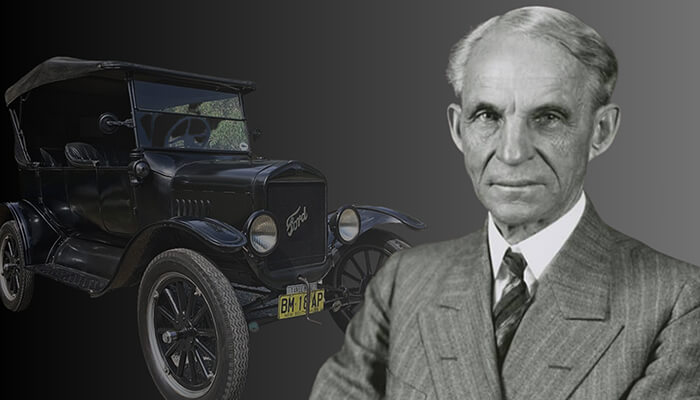Henry Ford, a visionary and innovator, faced various obstacles on his path to success. Born in 1863 into a modest farming family, Ford had limited access to formal education and financial resources. However, his determination and unwavering belief in his capabilities propelled him forward.
Henry Ford: A Visionary with Determination
Henry Ford, the iconic founder of Ford Motor Company, encountered numerous obstacles throughout his entrepreneurial journey. By taking calculated business risks, recognizing and seizing growth opportunities, and leveraging his exceptional business acumen, Ford overcame these challenges and left an indelible mark on the automotive industry.
Driven by his passion for mechanics and engineering, Ford relentlessly pursued knowledge and hands-on experience. He devoted himself to understanding the intricacies of machines, setting the stage for his future groundbreaking innovations in the automotive industry.
Overcoming Doubts and Resistance
One of the significant obstacles Henry Ford encountered was skepticism and resistance from established industry players. When he introduced the concept of mass-producing affordable automobiles, many considered it a risky proposition. However, Ford’s unwavering belief in his vision propelled him to take calculated business risks.
Ford’s groundbreaking introduction of the assembly line production system revolutionized the manufacturing process. Therefore, making cars more affordable and accessible. By streamlining operations and reducing production time, he defied conventional wisdom and overcame doubts surrounding the feasibility of his ambitious plans.
Growth Opportunities: Adapting to a Changing Market
Henry Ford possessed a keen sense of identifying growth opportunities. He recognized the increasing demand for automobiles as society underwent significant changes. The emerging middle class sought mobility and economic freedom, presenting a unique growth opportunity for Ford.
Ford was able to reduce the price of his cars while maintaining quality by constantly improving production techniques. This strategic approach allowed him to seize the growth opportunities presented by a rapidly changing market. Therefore, it established Ford Motor Company as a leader in the industry.
The Key to Sustainable Success
His exceptional business acumen played a pivotal role in overcoming obstacles and achieving sustainable success. He possessed a deep understanding of the market, consumer needs, and the importance of efficient operations. Ford’s visionary leadership and ability to optimize production processes set him apart from his competitors.
By implementing innovative business practices and embracing technological advancements, Ford drove efficiency, reduced costs, and improved productivity. His commitment to fair wages and employee welfare fostered a motivated workforce. Thus ensuring the long-term success of his company.
Conclusion
Henry Ford’s success story is a testament to his ability to overcome obstacles through calculated business risks, seizing growth opportunities, and leveraging his exceptional business acumen. His determination to challenge the status quo and adapt to a changing market allowed him to revolutionize the automotive industry. Ford’s legacy serves as an inspiration for aspiring entrepreneurs. Emphasizing the importance of vision, determination, and strategic decision-making in the face of adversity. By staying true to his beliefs and continuously innovating, his impact on the world of automobiles and business continues to resonate to this day.



